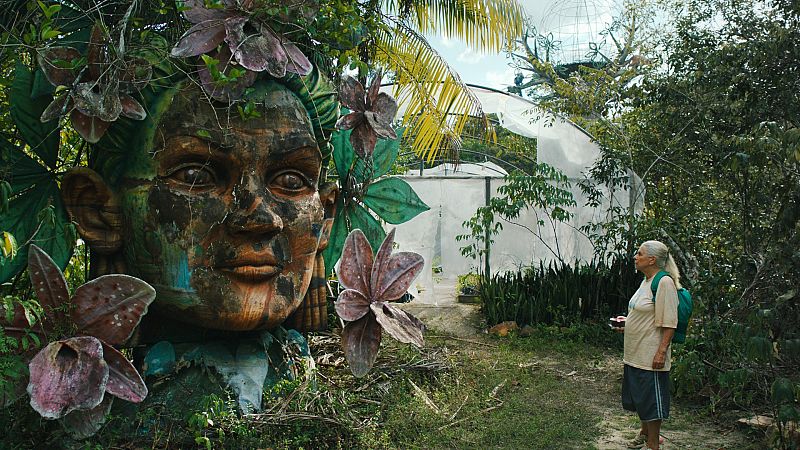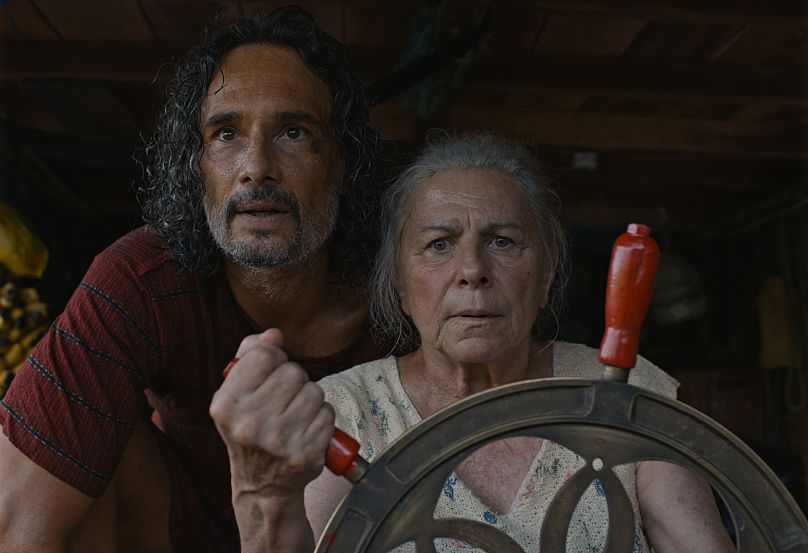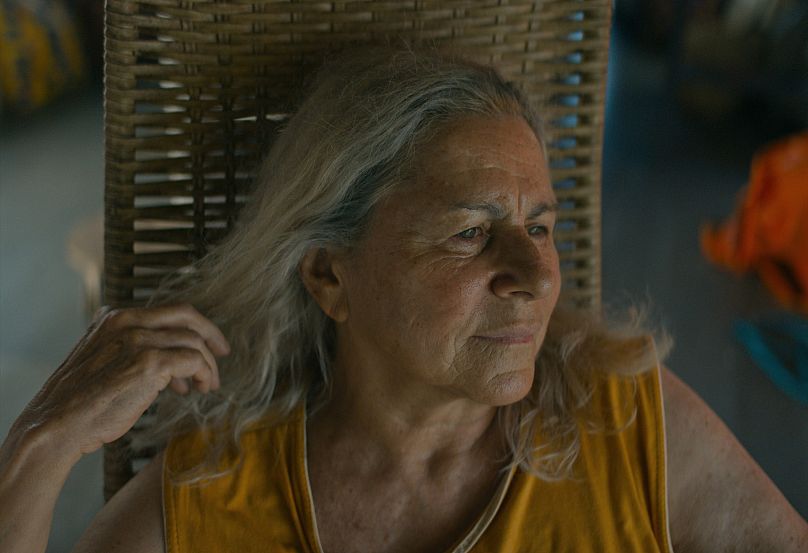Berlinale 2025 review: 'O último azul' ('The Blue Trail') - Can Brazil win the Golden Bear?

Brazilian cinema has been doing well of late, especially this year with the country’s first Best Picture Oscar nomination with Walter Salles’ I’m Still Here, which premiered at last year’s Venice Film Festival in Competition.
Director Gabriel Mascaro (Neon Bull, Divine Love) does his fellow filmmaker and country proud by playing in Berlin's Competition this year with O último azul (The Blue Trail).
Taking place in a near-future Brazil, it starts with a seemingly benevolent broadcast from the government, blaring out to the population that the elderly need to be looked after and that “the future is for everyone.”
Indeed, older citizens are celebrated with government tributes in the shape of laurels on their homes and medals honouring them as “national living heritages”. However, the reality is that the regime now forces older people to retire and relocates them to an isolated senior housing colony so that the younger generations can focus on productivity and growth without worrying about the elderly. A neoliberalist wetdream.
Refusal to accept one’s fate can lead you to be reported by your neighbour and picked up by the “Wrinkle Wagon”, before being transferred to the Colony.
Tereza (Denise Weinberg), 77, thought she was three years away from her forced relocation. However, the government has bumped the age threshold down to 75, so she’s unknowingly been breaking the law. She is now under the official guardianship of her daughter – which means she can no longer make a simple purchase without a green light – and gets retired from her job at a factory that processes alligator meat.
“The government wants you to rest,” says her supervisor.
“Why would I want to rest? I want to live,” she replies, having previously asked the tribute distributors: “Since when is getting old an honour?”
With only days left before her relocation, Tereza embarks on a journey to tick one last wish off her bucket list before she loses her freedom: she wants to take a plane ride. Her daughter’s refusal for a plane ticket purchase leads the headstrong septuagenarian to buy her way onto a riverboat and sail down the Amazon incognito with Cadu (Rodrigo Santoro).
When they are forced to stop, Cadu finds a rare “blue drool snail” that apparently appears on its own terms. It finds you. The gastropod’s slime, if used as eye drops, triggers a hallucinogenic trip which allows you to see your destiny. And temporarily look Fremen.
Along the way, Tereza also meets Roberta (Miriam Socarrás), a free spirited “nun” who, Tereza learns, managed to buy her freedom...
Let’s answer that header question: Yes, Brazil could win the Golden Bear this year. It's early days still, but The Blue Trail is a heart-spearing, heart-filling triumph.
Mascaro delicately embraces his central concept – which recalls Shōhei Imamura’s The Ballad of Narayama and, to a point, Chie Hayakawa’s Plan75 - and rather than overplay his hand, understands that a poetic tone can create a meaningful clash.
He crafts a hypothetical future that feels plausible, limiting the on-screen dystopia to a few subtly peppered details. Unlike his previous film Divine Love, which showed a neon future in which religion has been institutionalised and Brazil is ruled by evangelicals, Mascaro and his production designer Dayse Barreto create an imaginable projection of Brazil that feels a couple of years away. Apart from the standard issue backpacks and obligatory diapers, he shrewdly elects to never show the Colony; some visual cues (“Give me back my grandpa” graffiti on the walls) do suggest a place you don’t return from, which can lead to potentially Soylent Green suspicions if you’re feeling sinister.
Instead of overdoing the dystopia, Mascaro focuses his attention on Tereza and her moving road movie. Well, mostly water movie.
She is played to perfection by Denise Weinberg, who gives the character layers beyond her initial brash and no-nonsense attitude. Weinberg delicately allows a vulnerability to peer through stages of her performance, and she's superb. As well as hitting you straight in the feels, Tereza embodies Mascaro’s impactful protest against ageism. Dystopian insurrection routinely belongs to the young, but Tereza’s older body shows that our elders are more than capable of rebellion, especially when it comes to the forced displacement of communities and the dark possibilities that could feasibly decry from an authoritarian future.
Buttressed throughout by superbly shot riverscapes and fish fights (don’t ask – watch), as well as a terrific soundtrack, this affecting and at times unpredictably funny allegory is the most beautiful warning cry you’ll see all year.
O último azul (The Blue Trail) premiers at the 75th Berlinale in Competition.
Today



